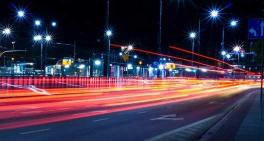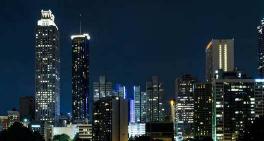Black robes or bathrobes? Virus alters high court traditions
Featured Legal News
The coronavirus pandemic is forcing big changes at the tradition-bound Supreme Court. The justices will hear arguments this month by telephone for the first time since Alexander Graham Bell patented his invention in 1876.
Audio of the arguments will be broadcast live by the news media, another first. This will be just the second time that the justices will meet outside the court since the Supreme Court building opened in 1935. (The discovery of anthrax in a court mailroom in 2001 forced a temporary relocation to another federal courthouse less than a mile away.)
The first argument is Monday, and the court will hear a total of 10 cases over six days. Among the cases to be argued: President Donald Trump’s bid to keep certain financial records private and whether presidential electors are required to cast their Electoral College ballots for the candidate who won their state.
Related listings
-
Wisconsin court sets argument date for stay-at-home lawsuit
Featured Legal News 05/03/2020The Wisconsin Supreme Court announced Friday that it will hear oral arguments early next week in a lawsuit seeking to block Democratic Gov. Tony Evers’ stay-at-home order.The justices ruled 6-1 to accept the case and scheduled oral arguments fo...
-
Court issues temporary restraining order on Gov. Kelly's order
Featured Legal News 04/19/2020A federal judge issued a limited temporary restraining order on Governor Kelly's order banning religious gatherings of ten or more people. The ruling was made by Judge John W. Broomes Saturday evening.Kelly responded, saying, "This is not about relig...
-
Kansas' high court rules for governor on religious services
Featured Legal News 04/12/2020The Kansas Supreme Court ruled Saturday that a Republican-dominated legislative panel exceeded its authority when it tried to overturn the Democratic governor’s executive order banning religious and funeral services of more than 10 people durin...

New Rochelle, New York Work Accidents Lawyers
It doesn’t matter what type of work you do or where you work, you can always be at risk of injuring yourself at your work no matter how safe you may think it is. Accidents in the workplace are often caused by unsafe work conditions arising from ignoring safety rules, overlooking maintenance or other negligence of those in management. Work accidents can cause serious injuries and sometimes permanent damage. Some extremely serious work injuries can permanently hinder a person’s ability to get around and continue their daily duties.
Factors that affect one’s quality of life like place of work, relationships with friends and family, social standing can all be taken away quickly by a work injury. Although, you may not be able to recover all of your losses, you may be entitled to compensation as a result of your work injury. In order to ensure that you and your loved ones receive the best outcome, make sure you have the help of an experienced New Rochelle, New York workplace injury lawyer you deserve. We can get you on your way to filing a claim against the responsible party. If you have been injured at your place of work it is important to know your options by seeking legal action. Kommer Bave & Ollman LLP offers a free case evaluation where we will answer any questions you may have and explain your legal options. Call us at 914-633-7400 or contact our firm to schedule a free consultation with an experienced attorney.




